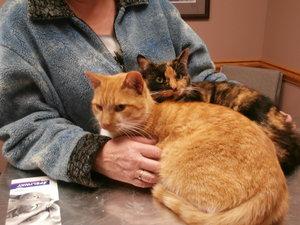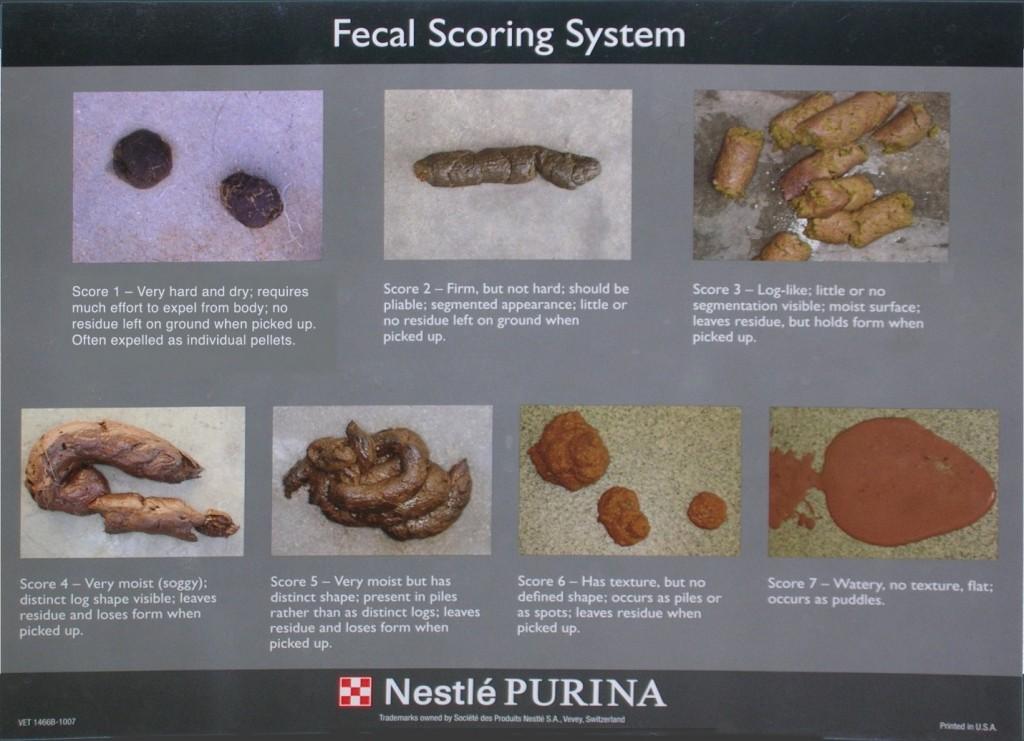
Cats usually have at least one poop per day and should not strain excessively. Constipation is an abnormal amount of feces that has accumulated in the colon and is difficult to pass. Cats with constipation may have reduced or no bowel movements in the litter box.
The more time that feces sits in the colon (large intestine), the more water is absorbed from the stool, creating a vicious cycle that makes it even more difficult for the cat to poop. Sometimes, when a cat strains to defecate, the hard stool will act like a partial obstruction and small amounts of liquid stool will continue to pass around the hard stool pieces, giving the false impression that the cat has diarrhea.
Signs that your cat may have constipation:
1) Abdominal discomfort, such as a hunched painful appearance
2) Straining to poop and crying in the litter box
3) Pooping outside of the litter box
4) Passing small hard pellets of stool
5) Passing small amounts of liquid stool or blood/mucus
6) Vomiting
7) Lack of appetite
8) Lack of energy/hiding
What does a normal feline bowel movement look like?
Here is a fecal scoring chart that is a handy way of assessing whether your cat’s stools are normal.
In the images below, score 3 is an example of a normal bowel movement.
What causes constipation in cats?
Here are some risk factors:
- Being a senior or geriatric cat
- Having hairballs
- Ingesting foreign material, such as plants or carpet
- Having arthritis or a narrowed pelvic canal from a previous injury
- Being obese
- Being dehydrated (which occurs commonly in cats with chronic kidney disease)
- Having decreased nerve/muscle function (for example, the tailless Manx cat)
Treatment of constipation
If your cat is diagnosed with constipation, through a physical exam and possibly by x-ray, one of the therapies below may be recommended:
- Laxative/stool softener
- Enema
- Hospitalization and re-hydration with IV fluids
- Manual evacuation of the colon
- Abdominal surgery to remove obstruction from the colon
- Medication to increase the ability of the colon to contract
If constipation is left untreated, it can lead to obstipation, which is the inability to empty the colon. This can lead to megacolon, which is a condition that results in loss of the colon’s motility. Severe cases may need to be treated with surgical removal of a portion of the colon.
What can I do to prevent my cat from becoming constipated?
- Add moisture to the diet – in the form of cat fountains, canned food or water added to food
- Add fibre to the diet
- Add exercise – this encourages the smooth muscle to push stool towards the rectum
- Add pain management for arthritis
- Add a mild laxative – for hairball control
- Any medications should only be given under the guidance of a veterinarian.
In addition to keeping litter box odour away, daily litter box cleaning is a good way of keeping tabs on your cat’s urinating and defecating habits, so that you can quickly recognize changes.
If you have any questions or concerns about your cats bowel movements talk to one of our team members at Coventry Animal Hospital.

